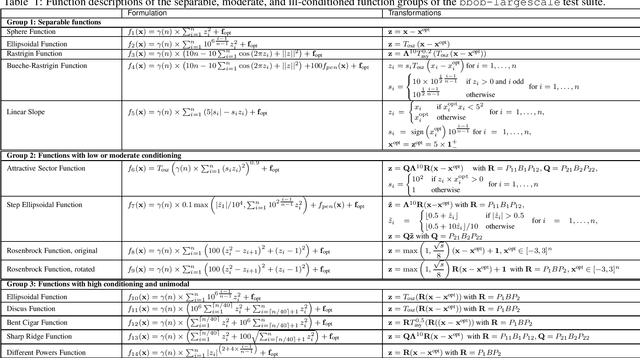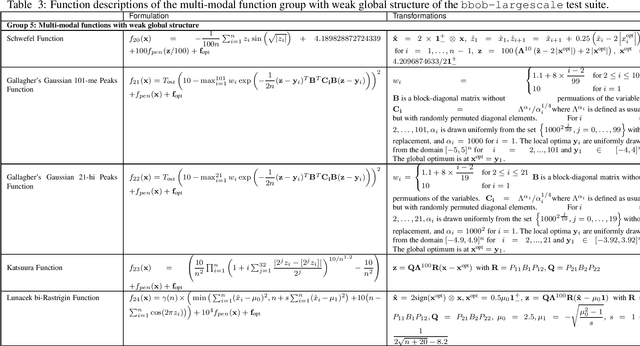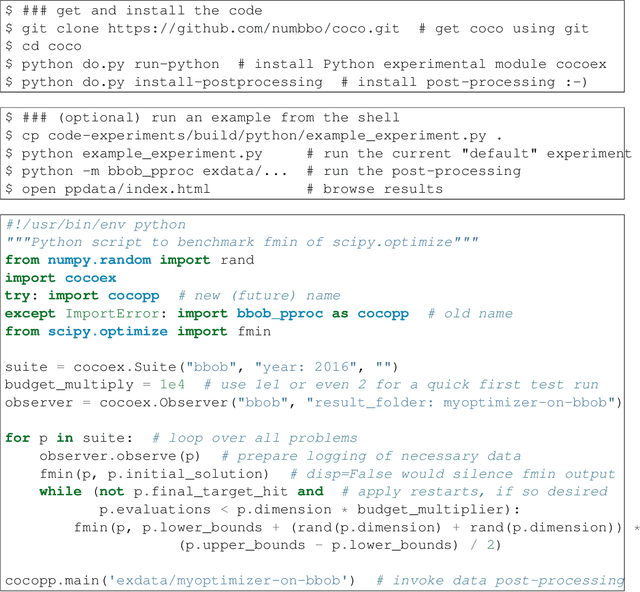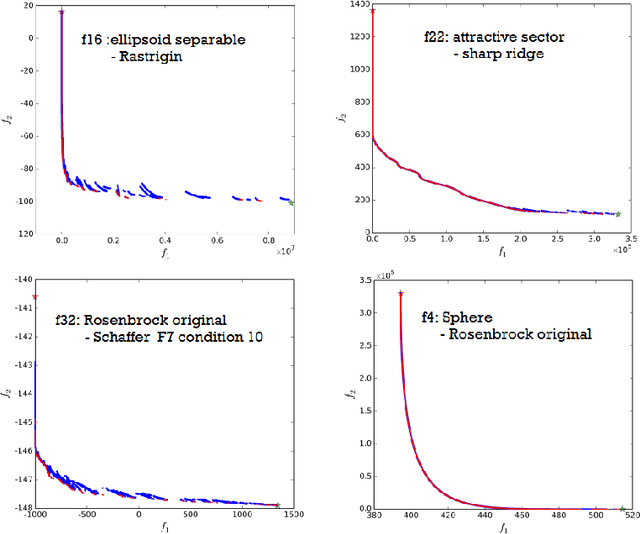Tea Tusar
IJS
Tools for Landscape Analysis of Optimisation Problems in Procedural Content Generation for Games
Feb 16, 2023



Abstract:The term Procedural Content Generation (PCG) refers to the (semi-)automatic generation of game content by algorithmic means, and its methods are becoming increasingly popular in game-oriented research and industry. A special class of these methods, which is commonly known as search-based PCG, treats the given task as an optimisation problem. Such problems are predominantly tackled by evolutionary algorithms. We will demonstrate in this paper that obtaining more information about the defined optimisation problem can substantially improve our understanding of how to approach the generation of content. To do so, we present and discuss three efficient analysis tools, namely diagonal walks, the estimation of high-level properties, as well as problem similarity measures. We discuss the purpose of each of the considered methods in the context of PCG and provide guidelines for the interpretation of the results received. This way we aim to provide methods for the comparison of PCG approaches and eventually, increase the quality and practicality of generated content in industry.
COCO: The Large Scale Black-Box Optimization Benchmarking Test Suite
Mar 28, 2019


Abstract:The bbob-largescale test suite, containing 24 single-objective functions in continuous domain, extends the well-known single-objective noiseless bbob test suite, which has been used since 2009 in the BBOB workshop series, to large dimension. The core idea is to make the rotational transformations R, Q in search space that appear in the bbob test suite computationally cheaper while retaining some desired properties. This documentation presents an approach that replaces a full rotational transformation with a combination of a block-diagonal matrix and two permutation matrices in order to construct test functions whose computational and memory costs scale linearly in the dimension of the problem.
COCO: A Platform for Comparing Continuous Optimizers in a Black-Box Setting
Aug 01, 2016
Abstract:COCO is a platform for Comparing Continuous Optimizers in a black-box setting. It aims at automatizing the tedious and repetitive task of benchmarking numerical optimization algorithms to the greatest possible extent. We present the rationals behind the development of the platform as a general proposition for a guideline towards better benchmarking. We detail underlying fundamental concepts of COCO such as its definition of a problem, the idea of instances, the relevance of target values, and runtime as central performance measure. Finally, we give a quick overview of the basic code structure and the available test suites.
COCO: The Bi-objective Black Box Optimization Benchmarking Test Suite
May 25, 2016
Abstract:The bbob-biobj test suite contains 55 bi-objective functions in continuous domain which are derived from combining functions of the well-known single-objective noiseless bbob test suite. Besides giving the actual function definitions and presenting their (known) properties, this documentation also aims at giving the rationale behind our approach in terms of function groups, instances, and potential objective space normalization.
COCO: The Experimental Procedure
May 19, 2016Abstract:We present a budget-free experimental setup and procedure for benchmarking numericaloptimization algorithms in a black-box scenario. This procedure can be applied with the COCO benchmarking platform. We describe initialization of and input to the algorithm and touch upon therelevance of termination and restarts.
 Add to Chrome
Add to Chrome Add to Firefox
Add to Firefox Add to Edge
Add to Edge